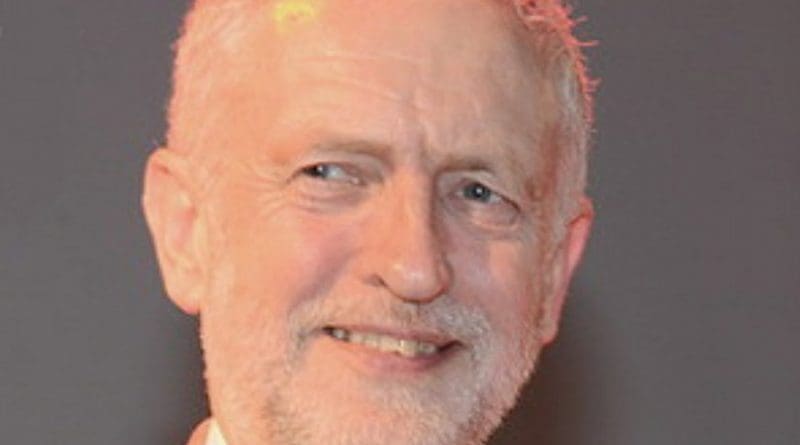The Friends Of Jeremy Corbyn – OpEd
By Arab News
By Neil Berry
British people are remembering the “Battle of Britain,” the great drama that unfolded in the sky over southern England 75 years ago when Royal Air Force fighter pilots faced down the German Luftwaffe.
The heroism of the “few,” who included volunteers from the British Empire and occupied Europe, deterred Adolph Hitler from invading Britain. This was a moment when Britain faced an all too tangible “existential threat,” with the prospect looming of total European capitulation to Nazi totalitarianism. Indeed, viewed from the perspective of 1940, the assertion of UK Prime Minister David Cameron that Britain confronts a current existential threat in the shape of Daesh appears preposterous.
There has been an alarming loss of proportion in British political discussion. It was former UK Prime Minister Tony Blair’s hyped-up portrayal of Saddam Hussein as a new Hitler with the capacity to mobilize weapons of mass destruction against British targets that precipitated Britain’s calamitous military intervention in Iraq.
Loss of proportion has marked the demonization by politicians and commentators of the new leader of the Labour Party, Jeremy Corbyn. You could be forgiven for thinking that Corbyn, a pacifist republican and a vastly different Labour leader from Tony Blair, was an existential threat to Britain in his own person. During the recent Battle of Britain memorial service held at St Paul’s Cathedral, Corbyn stood in respectful silence, declining to sing the national anthem with its opening line “God save our gracious Queen.”
This was portrayed as proof that he is utterly unfit to hold public office, with no effort spared to fix an image of him as a politician who despises his own country. Yet the truth is that the Battle of Britain was fought in the name of democracy, of the right to free thinking and free speech.
No small part of the reason for the vilification of Corbyn is that he has been an implacable enemy of British foreign policy in the post-9/11 era. Prominent among his political allies are Muslim activists who opposed war in Iraq and who support the Palestinian cause. Indeed, no British politician has had been more consistent in his excoriation of Israeli human rights abuses. Small wonder that the general demonization of Corbyn has been supplemented by the particular demonization of him by Zionists.
“Friends of Israel’ stop short of accusing him of anti-Semitism but insinuate that he has compromised himself by association with holocaust-deniers and Judaeophobes dedicated to the destruction of the Jewish state. These are smears — but potentially damaging smears and Corbyn will have to demonstrate that he is none of the things his Zionist detractors allege.
Opposed to direct UK military intervention in Syria, Corbyn faces a major test in November when parliament is expected to debate the question of possible air strikes there, with David Cameron and most of his Conservative Party, plus not a few Labour MPs, favoring such action.
What sets Corbyn’s leadership apart is that he was elected by a new and wider voting system that has resulted in the recruitment of many new young party members enthused by his pledge to make the Labour Party properly democratic and transform the conduct of politics.
In his first parliamentary confrontation as party leader with David Cameron, Corbyn put “crowd-sourced” questions to the prime minister, in acknowledgment of a widespread hunger for a fresh inclusive style of political debate.
Nobody has done more to stimulate this hunger than Tony Blair, a purported democrat with the mentality of an autocrat. The most discredited leader in the history of the Labour Party, Blair cautioned that those who voted for Corbyn were condemning the party to unending unelectability. It was a warning that backfired in spectacular fashion, serving only to swell support for Corbyn’s leadership campaign. Many who voted for Corbyn were plainly seeking a leader committed to rehabilitating the Labour Party as a moral force; some may positively prefer an unelectable but ethical Labour Party to one defined by Blair’s bellicosity and Realpolitik.
It is a rich irony that Blair effectively enrolled himself as a Corbyn lobbyist. Jeremy Corbyn and his supporters are entitled to wonder: With enemies like Tony Blair, who needs friends?

